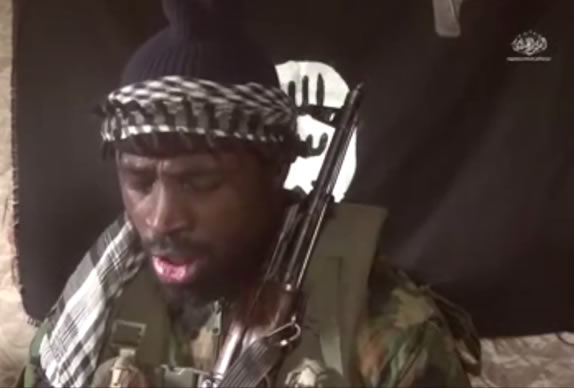Inside details of ISWAP’s mission to take down Shekau
The Islamic State in West Africa Province (ISWAP) has ended the decade-long brutality of Abubakar Shekau, leader of the Boko Haram sect. While many have rejoiced over the end of Shekau, there are concerns that the Boko Haram insurgency has just taken a new dimension. ISIS won’t get $7m bounty placed on Shekau, says US […]

The Islamic State in West Africa Province (ISWAP) has ended the decade-long brutality of Abubakar Shekau, leader of the Boko Haram sect.
While many have rejoiced over the end of Shekau, there are concerns that the Boko Haram insurgency has just taken a new dimension.
- ISIS won’t get $7m bounty placed on Shekau, says US
- How 300 Libya-trained ISWAP fighters ‘conquered’ Shekau
Daily Trust had reported how the terrorist group enlisted 300 fighters in the mission to force Shekau to surrender.
Ahead of the mission to invade the stronghold of Shekau in Sambisa forest, ISWAP had trained fighters in Libya, Somalia and other countries abroad.
When they returned to the country, they were camped at a village called Shuwaram in Kukawa Local Government Area of Borno State.
The fighters comprising young persons between the ages of 12 and 30 went all out against Shekau and his men.
A source told Daily Trust that ahead of the invasion of Sambisa, the attackers moved their “vulnerable women and children” from the Marte area to some locations around Kukawa.
One of the top commanders of the Islamic State of Iraq and the Levant and his lieutenants had visited the shores of the Lake Chad in company of ISWAP leader Goni Mustafa.
“The entourage were seen on two boats with ISIS flag. Some of those in the entourage were light-skinned people possibly from Libya or Syria. It was only Mustafa that was black. They first visited Marte before they proceeded to Sabon Tumbu.
“They also visited Kirta, Kusuma and Kwallaram where they held meetings with commanders and other fighters,” the source said.
The source said after the strategy meeting, the visiting terrorists left and since then, the ISWAP fighters started mobilising ahead of the attacks on Sambisa Forest.
“Some of them gathered at Kurnuwa, Kayuwa and Tumbin Jaki before they launched the offensive. They had RPGs, GPMGs and AA guns on some vehicles,” he said.
Another source said before they aimed at Sambisa Forest, the ISWAP fighters were responsible for the recent attacks in Damasak, Marte, Mainok, Dikwa and Maiduguri towns in Borno as well as in Geidam in Yobe State.
“They did not target civilians in most of their attacks; rather, they launched attacks against constituted authorities including security forces. The group handpicked and killed people perceived as enemies such as members of a volunteer security group, CJTF.
“On the other side, Shekau and his followers operated from the southern parts of Borno State, mostly around the Mandara Mountains, Sambisa National Park and the Alagarno forest. The group had carried out several deadly attacks on its targets including civilians. Shekau was strict on his followers and did not tolerate rebellious behaviour…He had killed several of his renegade commanders and that was why many of those alive ditched him,” he said.
The source said some of the followers of Shekau who were forced to flee the violent confrontation had sought refuge in different locations in the forest and are ready to pay allegiance to anybody declared as overall leader.
ISWAP is expected to release a statement on the replacement of Shekau any moment from now.
